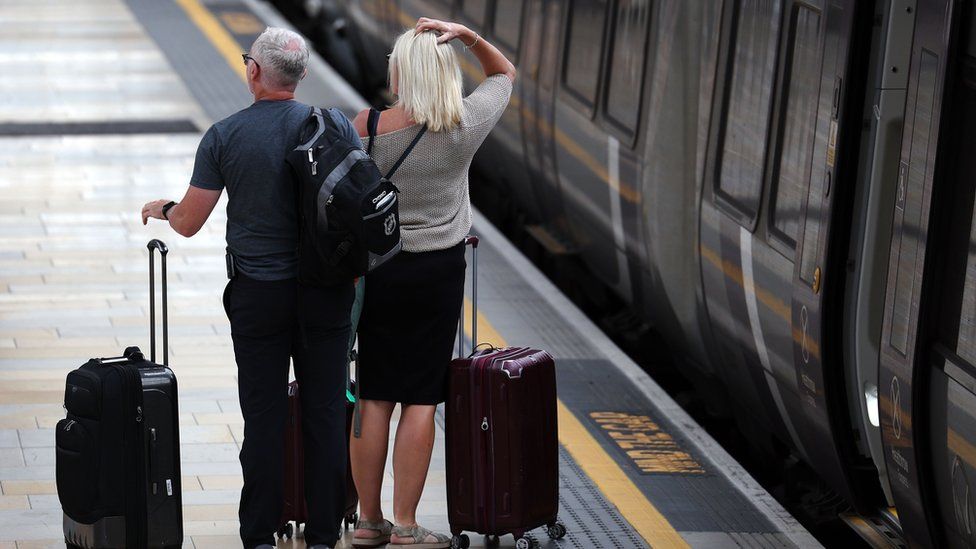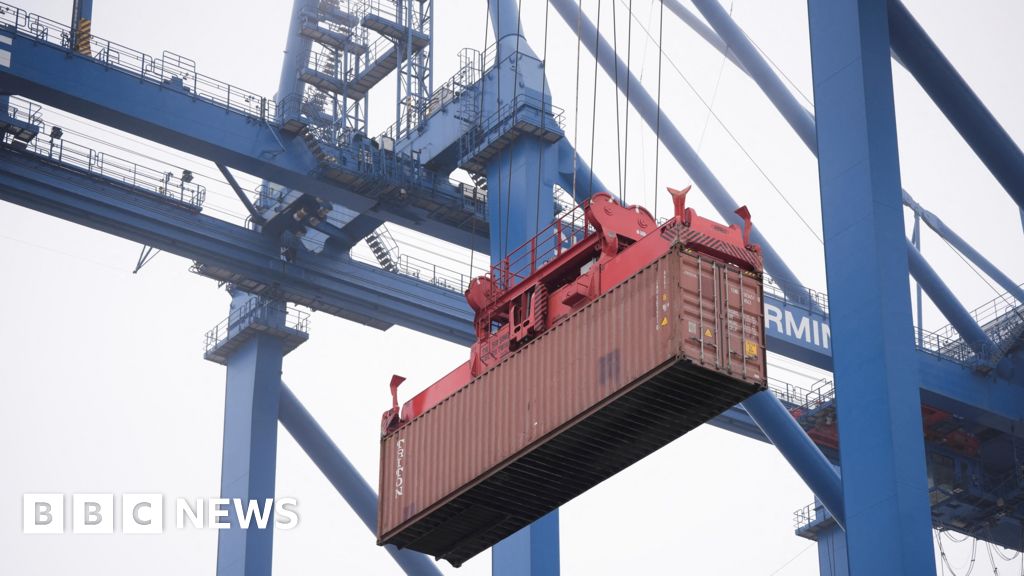ARTICLE AD BOX
 Image source, Getty Images
Image source, Getty Images
Last month's strike saw many looking for alternative transport - expect similar scenes this weekend
Rail passengers across England face disruption on Saturday as 20,000 staff begin a strike over pay and working conditions.
The action comes the same day as events including the Notting Hill Carnival and Reading and Leeds festivals.
Mick Lynch, head of the RMT union, said the strikes would continue until a new settlement for workers was reached.
The Department for Transport said the government had made "fair and reasonable pay offers".
Workers from 14 train operators are taking part in Saturday's strike, which is its 24th since last summer.
The action will see a reduced timetable in place in much of England, with some journeys into Scotland and Wales also affected.
Around half the usual train services will run and in many areas they will start late and finish much earlier than usual.
Further action is planned for 2 September, while member of the train drivers union, Aslef, are set to walk out on 1 September.
As well as a new pay deal, the RMT is demanding an end to job losses resulting from the closure of hundreds of ticket offices.
Image source, Getty Images
Image caption,Leeds festival is already in full swing, with thousands already on site - but many more will have day tickets for Saturday and Sunday
Image source, Getty Images
Image caption,Huge crowds are expected to travel to London this weekend for the Notting Hill carnival
Speaking to the BBC, Mr Lynch said that "there will be more strikes if there's no change".
"Our members don't want to be on strike," he said. "But they understand that if they want to defend our service against all these mass closures…, if they want job security and decent conditions, they are going to have to campaign and fight for those things. So our members remain determined."
"We are fully prepared to see this through until we get an agreement."
Earlier this year, the Rail Delivery Group (RDG), which represents the train operators, made an offer that would have seen rail workers receive a backdated pay rise of 5% for 2022.
A further pay rise for 2023 would then have been conditional on reforms to services.
On 5 May, RMT members voted to extend the strike mandate for another six months.
The rail industry was badly impacted by the pandemic, and industry figures have argued changes to ways of working will be necessary in order to finance any pay rise.
Ahead of Saturday's strike, the RDG said the action had been "designed to deliberately target passengers who want to enjoy various sporting events, festivals, and the end of the summer holidays".
A Department for Transport spokesperson said: "The government has played its part to try and end these disputes by facilitating fair and reasonable pay offers, but union leaders refuse to allow their members to vote on them.
"By cynically targeting the bank holiday weekend, and driving more passengers away from train travel when our railways are already losing £10m a day even without industrial action, the RMT's strikes are damaging its own industry's future."

 1 year ago
22
1 year ago
22








 English (US)
English (US)